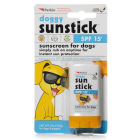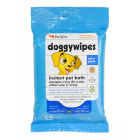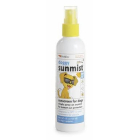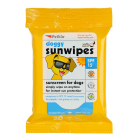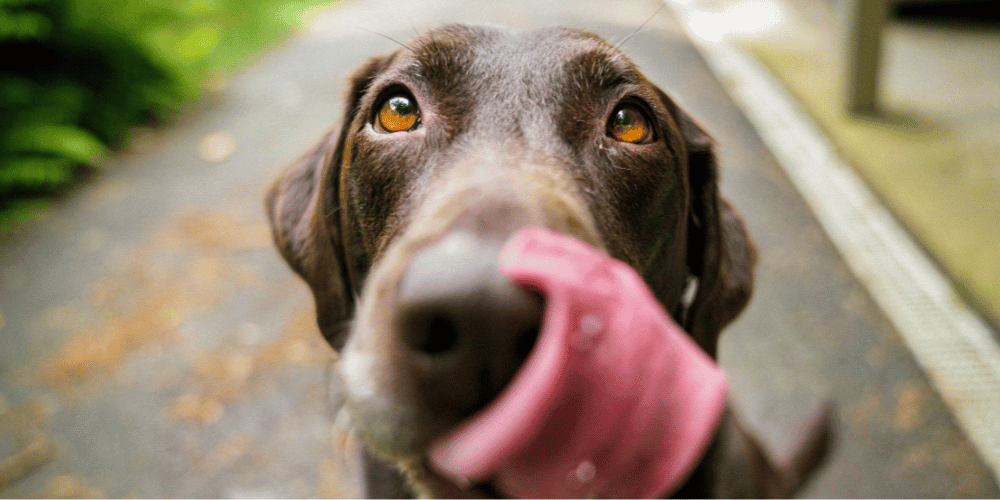
Aside from being incredibly adorable, our pet’s noses are pretty amazing things. A dog’s nose has up to 100 million more receptors than our humble human noses, and the part of a dog's brain that processes scent is 40 times bigger than ours! Cats have even more receptors than dogs, with up to 200 million in those cute little schnozzes.
Dogs have been trained to use their super nose to sniff out cancer, detect low blood sugar levels, and there was even a study completed in 2020 that wanted to see if dogs could sniff out coronavirus!
Once upon a time, you may have thought that checking to see if your pet had a wet or dry nose was a good way to assess their health, but now we know differently. A wet nose does not necessarily mean your pet is well, and a dry nose doesn’t always mean your pet is sick.
This blog covers reasons why your pet's nose may be wet, why it may be dry, and symptoms that, when accompanied with a dry or wet nose, mean it's time for trip to the vet.
Why Is My Pet's Nose Wet?
There are several reasons why your pet may have a wet nose:
- There are glands in the noses of dog’s and cat’s that produce a watery fluid that keeps their nose wet which helps them to regulate their body temperature
- Their tear ducts drain into their nose which helps keeps their nose cool and wet
- Dogs in particular lick their noses a lot. This actually helps them to smell better by making scent particles stick to their noses and then when they lick their nose they can “taste” the scent particles. Cats may lick their nose to “reset” them by removing scent particles that have gotten stuck and so they can get a better whiff at the next smell that comes along
Perfectly Normal Reasons Why Your Pets Nose Might Be Dry
- Your dog can't lick their nose when they are sleeping so if they have just woken up from a sleep it may have dried out a bit
- Your cat or dog has been exercising and they are a little dehydrated. Encourage them to drink some water or if you think they don't drink enough water, consider swapping their dry food for wet to ensure they receive adequate water intake.
- They’ve been out in the sun, wind or cold and this has dried their nose out. Some dogs and cats, and particularly those with white fur can be more prone to suffering sunburn on their nose or areas where their fur is thin.
Specially made pet sunscreens are safe to apply as they won't make your pet sick if they decide to lick it off.
Options Include Filta-Bac, Petkin Doggy Sun Stick, Petkin Doggy Sunwipes, Petkin Doggy Sunmist. - They’ve been close to a heat source, such as a fire or heating vent, which has dried their nose out. As dogs and cat’s age, their noses can become drier
- Brachycephalic breeds like Bulldogs, Pugs and Persians may have trouble licking their noses and certain breeds are more prone to blocked tear ducts which prevents drainage from entering their noses
When To Worry About Your Pet’s Nose
- If your pet has a dry nose as well as one or more symptoms such as lethargy, vomiting, diarrhea, or changes in activity levels or appetite
- Their nose is cracked, bleeding, dry or scabby. This could be due to sunburn, insect bites or another type of trauma to the nose. In rare cases, a dry nose that is also cracked, bleeding or scabby may be a symptom of an autoimmune condition such as lupus or pemphigus.
- Your pet has lots of nasal discharge (particularly if it is green, yellow or black) and is sneezing or wheezing a lot
- They have a dry nose as well as a fever and feel warm all over
- Their nose is red and/or swollen, and they are scratching or licking at it almost constantly
- If they won't stop licking their nose, ever! Excessive licking of the nose can be a symptom of certain neurological conditions, including partial seizures or anxiety, and it is also a submissive behaviour
If you are still worried that your pet's wet or dry nose means they are unwell, you should always consult with your veterinarian.
